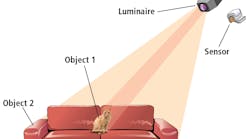The TSB, a business-led non-departmental public body established by the UK government, has allocated the money to invest in industry-led, highly innovative collaborative research in areas such as high brightness LEDs (inorganic and/or organic), as well as lasers and displays.
Explaining the background to the decision to invest in this area, TSB Chief Executive Iain Gray said: “Lighting accounts for up to 20% of the UK’s power. As we move towards a lower carbon economy, and recognise the need for more efficient energy use, developing advanced light sources becomes increasingly important.”
Applicants must register their intention to apply for funding, and submit an outline of their proposal, by 22 February 2008. The final closing date for applications is 27 March 2008 (see www.technologyprogramme.org.uk for more details).
The TSB’s investment will provide partial funding for winning projects that involve businesses working collaboratively with other businesses and/or with research organisations and academic institutions.
Last year, the UK government funded several LED-related projects – Related Stories, right.
The Advanced Lighting, Lasers and Displays competition – part of the TSB's autumn 2007 call for proposals in a number of innovation and technology areas – is intended to stimulate UK companies to address the challenges of establishing solutions which improve device efficiency while reducing energy consumption or successfully integrating new and existing component technologies to provide physical proofs of principle. The investment will help to accelerate development, bringing the technologies quickly and cost effectively to market.
"The TSB is committed to stimulating the development and deployment of technologies which, while contributing to the UK’s climate-change goals, also represent major business opportunities for the UK," said Gray. "Advanced light sources are an area where the UK has both an excellent reputation for world-class research activity and a healthy industrial base with the capability to exploit the results globally."
Projects are invited that will result in improvements in the overall efficiency with which light is generated, across a range of applications from solid-state lighting through brighter displays to laser systems. Projects that demonstrate system level improvements in light generation/extraction techniques are particularly welcomed in the following areas;
• Electronic, packaging and optical coupling techniques to enable reliable, sustainable, cost-effective, high-brightness, quality, high-efficiency organic and/or inorganic [LED-based], general and task lighting systems as well as mood lighting, indicator lighting and display lighting systems.
• Research, development and design of advanced diode and non-diode laser systems such as solid-state and fibre lasers, and their innovative use in healthcare, manufacturing and other applications.
• Integration of component technologies to provide physical proofs of principle and demonstrations of practicality. Proposals could involve advances in thermal/power management, packaging technologies, improved optical extraction technologies, driver integration or other techniques.
About the Technology Strategy Board (TSB): The TSB is a business-led executive non-departmental public body, established by the government. Its mission is to promote and support research into, and development and exploitation of, technology and innovation for the benefit of UK business, in order to increase economic growth and improve the quality of life. It is sponsored by the Department of Innovation, Universities and Skills (DIUS).
The Collaborative Research and Development program was formerly run by the now-defunct Department of Trade& Industry (DTI).




